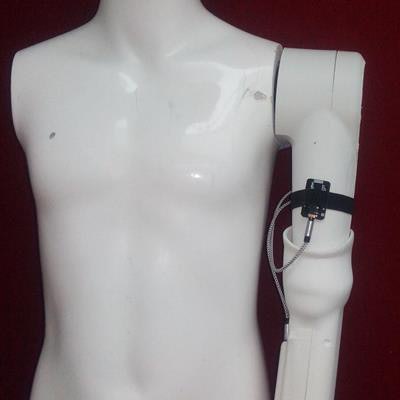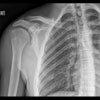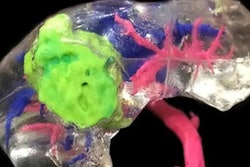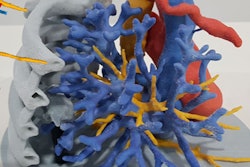
A U.K. group has designed a prototype 3D-printed prosthetic arm based on medical images that uses sensors to detect electrical signals from muscles and activate movement.
 3D-printed prosthetic arm. Image courtesy of the University of Lincoln.
3D-printed prosthetic arm. Image courtesy of the University of Lincoln.Traditional arm prosthetics are often expensive and challenging to manufacture for infants due to their rapid growth rate. The group's 3D-printed prosthetic is specifically aimed at providing children younger than 2 years with an affordable and individually tailored prosthetic arm. The relatively lightweight device is designed to enable toddlers to grip and pick up objects similar to the way they would with natural arm movements.
"Many traditional active prosthetics are unsuitable for toddlers as they are very time consuming to construct and heavy," project leader Dr. Khaled Goher from the University of Lincoln said in a statement. "Our proposed system would utilize a seven-channel pediatric armband with motion sensors allowing infants to benefit from and become familiar with active prosthetics."



















